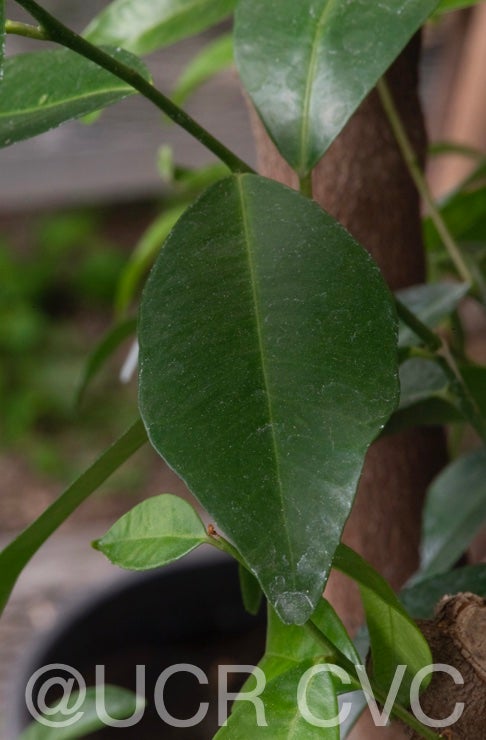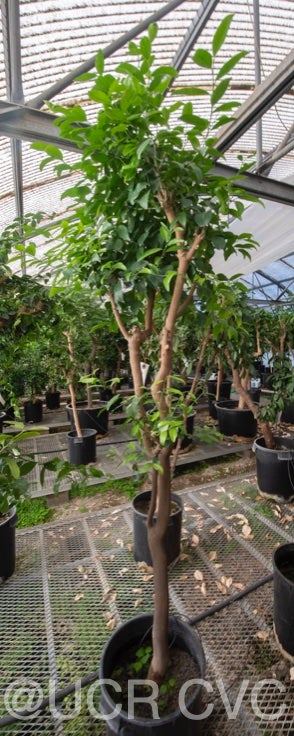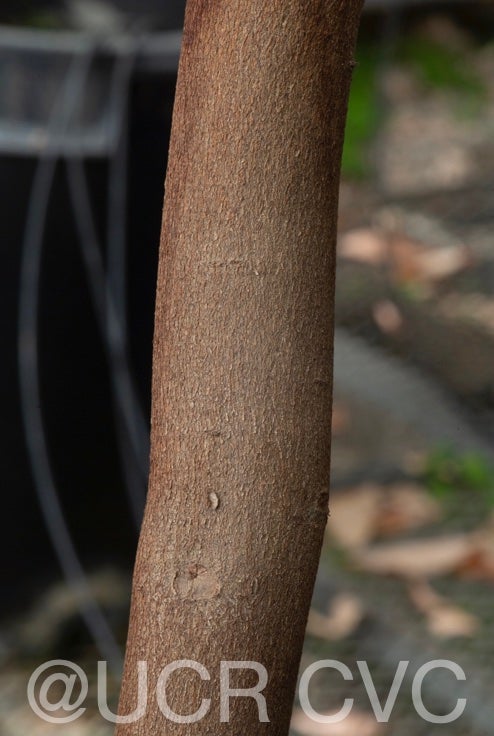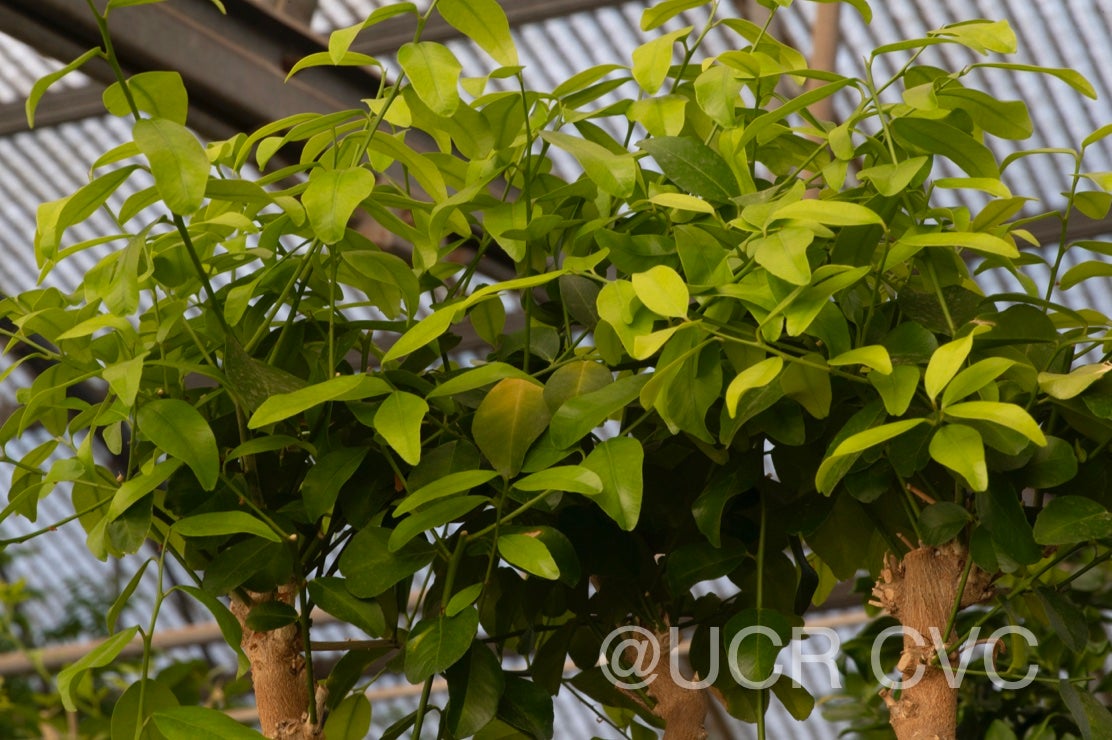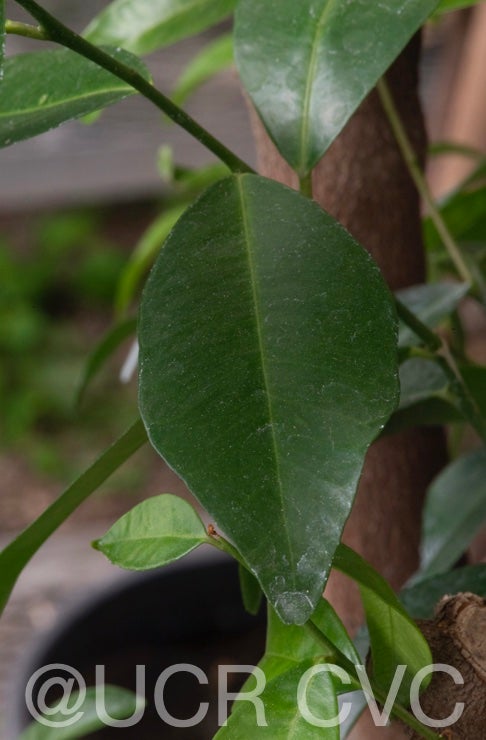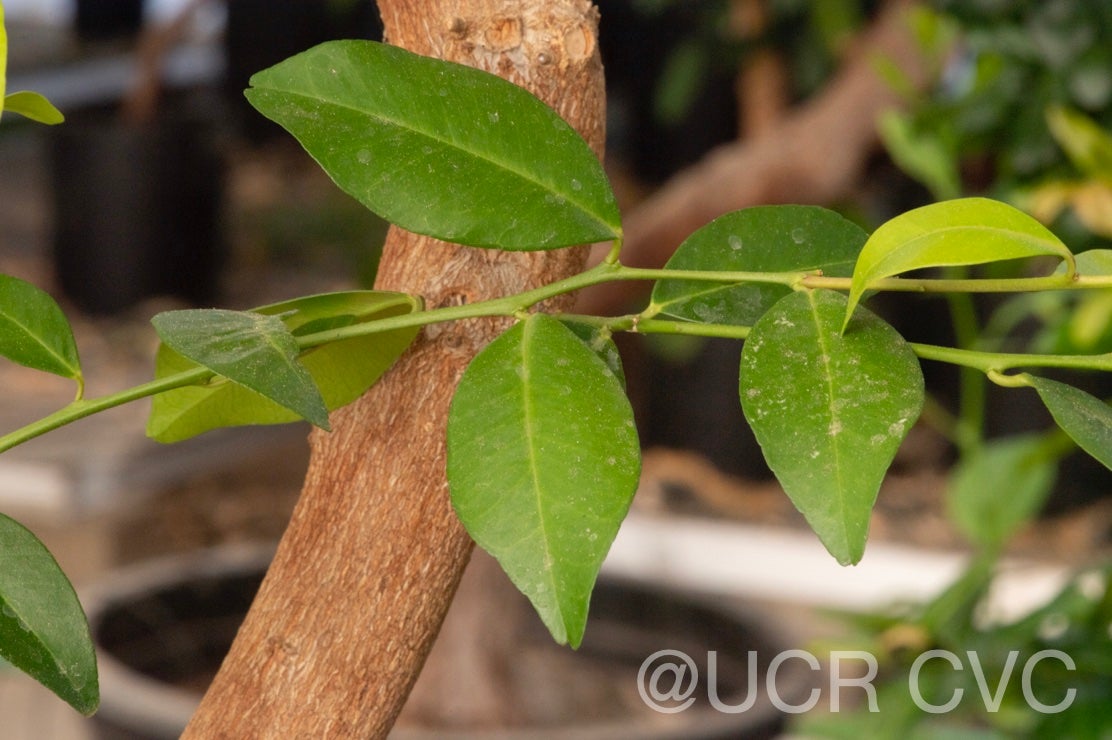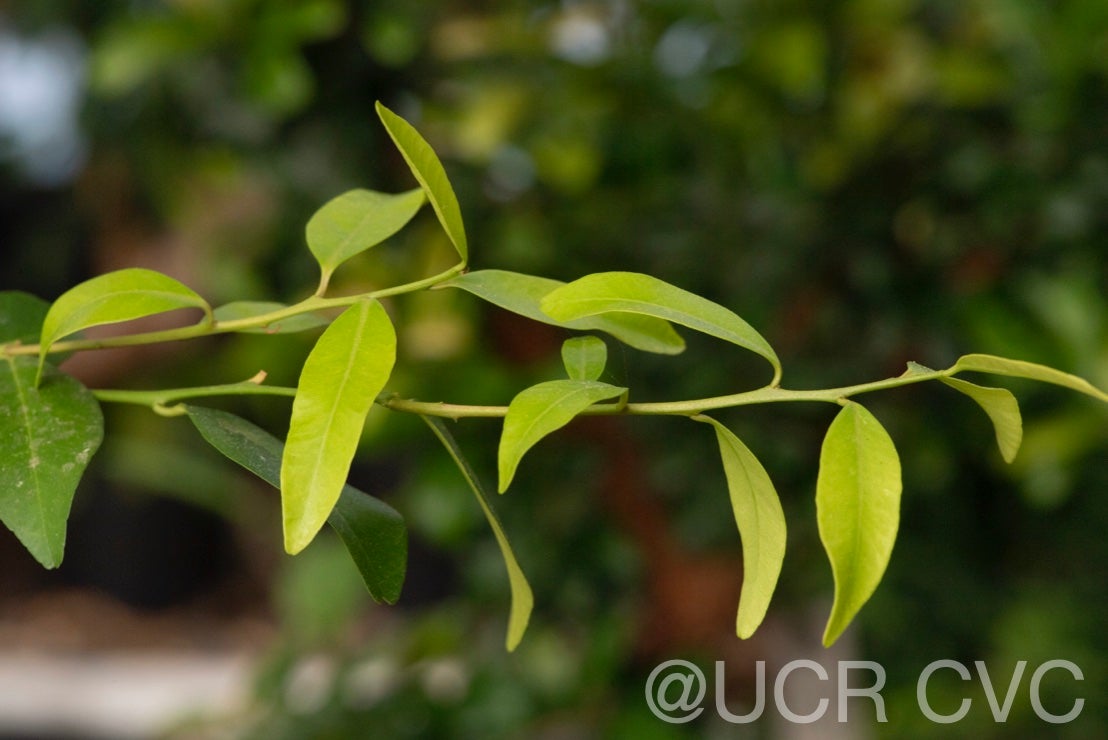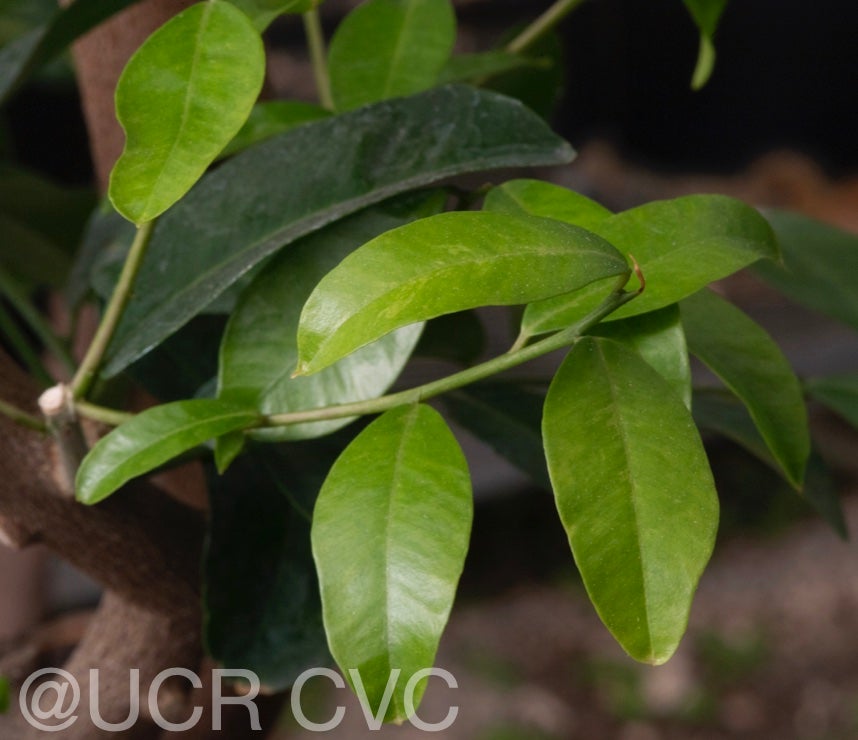Philippine box orange
CRC 4036
PI 607467
Source
Received as open-pollinated seed, University of Malaya, Wilayah Persekutuan Kuala Lumpur, Malaysia, 1991
Parentage/origins
Parents unknown, collected by the donor from source tree at "Kg Kinarut, Papar District, Sabah, East Malaysia; in disturbed beach forest (wild)."
Rootstocks of accession
Own roots.
Season of ripeness at Riverside
Unknown
Notes and observations
None
Description from The Citrus Industry Vol. 1 (1967)
"Young twigs angular, sometimes with scanty gray pubescence soon glabrous and terete, sometimes apparently glabrous from the beginning; twigs spineless but occasionally with paired, slender, sometimes pubescent spine-like paraphylls rarely equaling the petioles in length; leave 3-8 (rarely 10-11) cm long by2.5-4 (rarely 1.5-2) cm wide, oval, ovate-lanceolate or sometimes fusiform acuminate or acute at the apex, acumen often blunt and frequently marginate, narrowed gradually into a cuneate base which merges into the petiole, margin subentire sometimes slightly crenelate and frequently wavy in dried specimens, lateral veins visible above but slightly more prominent below, extremely numerous, parallel, straight, occasionally showing 15-20 pairs, arising at an angle of 55-60 F with the midrib; petioles 3-9 (usually 6-8) mm long, flattened above with a furrow made by the decurrent margins of the lead, sometimes pubescent, sometimes almost glabrous, especially on the under side; inflorescences many-flowered, axillary or rarely terminal racemes, 3-6 cm long (rarely 8-9 cm long , and much branched); pedicels slender, 3-5 mm long, with minute bracelets at their juncture with the peduncle; both peduncles and pedicels pubescent ; calyx persistent, sepals 5, imbricate, broadly rounded, margin dilate, ; petals 5, 3.5-4.5 mm long, 2-3 mm wide, oblong or obovate; stamens 10, nearly as long as the petals, filament flattened, broad, free, anthers short, small, ovate; ovary subglobose, small (1.5-2 mm long), 2-locular, with 2 large glands at apex, 1 over each locule; disk cupulate, partly enclosing the base of the ovary; style as long or longer than the ovary, stigma ovoid, slightly broader than the style, fruits subglobose, many large, translucent oil glands, 0.5-0.75 mm diam.; seeds thick, monoembryonic, testa exceedingly thin, embryo olive-green when dry and covered with numerous minute oil glands, 0.1 mm diam.
This species, very abundant in the northern-Philippine Islands, is so like the box-orange S. buxifolia, that when it was found the latter could be used successfully as a rootstock for Citrus test were also made with S. disticha. It was found to serve as a rootstock almost as well as the box-orange and, like it, to be resistant to amounts of boron in the soil moisture that would be injurious to Citrus grafted on the commonly used rootstocks belonging to the genus Citrus. Swingle made these tests over thirty years ago in a greenhouse in Washington, D.C. by watering potted seedling plants of Citrus, Severinia, and other genera of the orange subfamily with water containing 2 ppm of boron. Because of the evaporation from the oil and transpiration from the plant, the boron accumulated in the soil rather rapidly and soon the Citrus seedlings showed the characteristic yellowish-green mottling of the leaves, followed by severe injury and even death. The seedlings of Severinia buxifolia and S. disticha remained healthy for many weeks after those of the Citrus species showed sever injury. Severing disticha has fruited freely in Miami, Florida."
Availability
Not commercially available in California.
USDA Germplasm Resources Information Network page for Severinia disticha (CRC 4036)
